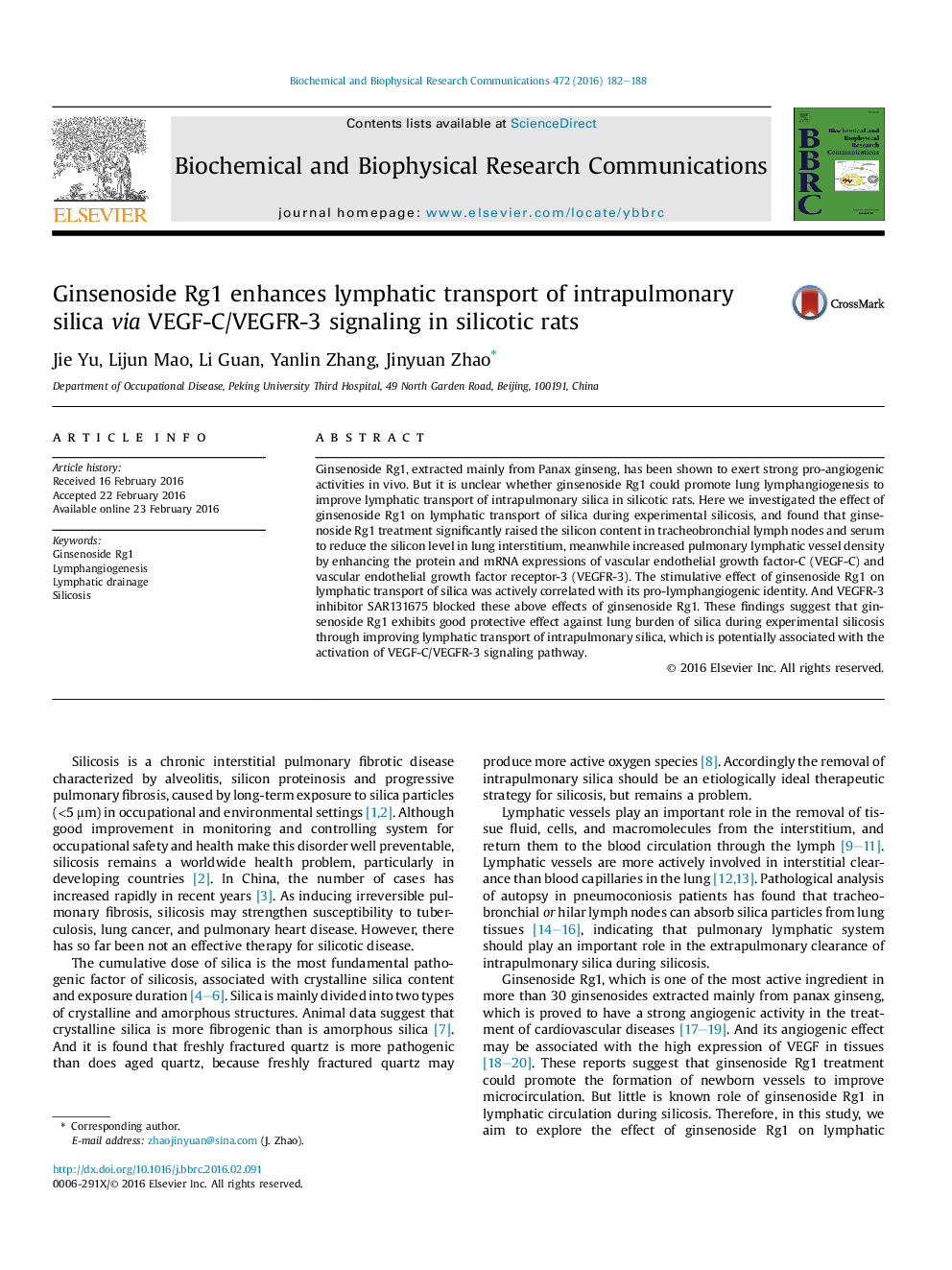| Article ID | Journal | Published Year | Pages | File Type |
|---|---|---|---|---|
| 10748625 | Biochemical and Biophysical Research Communications | 2016 | 7 Pages |
Abstract
Ginsenoside Rg1, extracted mainly from Panax ginseng, has been shown to exert strong pro-angiogenic activities in vivo. But it is unclear whether ginsenoside Rg1 could promote lung lymphangiogenesis to improve lymphatic transport of intrapulmonary silica in silicotic rats. Here we investigated the effect of ginsenoside Rg1 on lymphatic transport of silica during experimental silicosis, and found that ginsenoside Rg1 treatment significantly raised the silicon content in tracheobronchial lymph nodes and serum to reduce the silicon level in lung interstitium, meanwhile increased pulmonary lymphatic vessel density by enhancing the protein and mRNA expressions of vascular endothelial growth factor-C (VEGF-C) and vascular endothelial growth factor receptor-3 (VEGFR-3). The stimulative effect of ginsenoside Rg1 on lymphatic transport of silica was actively correlated with its pro-lymphangiogenic identity. And VEGFR-3 inhibitor SAR131675 blocked these above effects of ginsenoside Rg1. These findings suggest that ginsenoside Rg1 exhibits good protective effect against lung burden of silica during experimental silicosis through improving lymphatic transport of intrapulmonary silica, which is potentially associated with the activation of VEGF-C/VEGFR-3 signaling pathway.
Related Topics
Life Sciences
Biochemistry, Genetics and Molecular Biology
Biochemistry
Authors
Jie Yu, Lijun Mao, Li Guan, Yanlin Zhang, Jinyuan Zhao,
